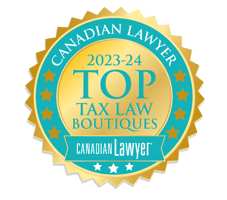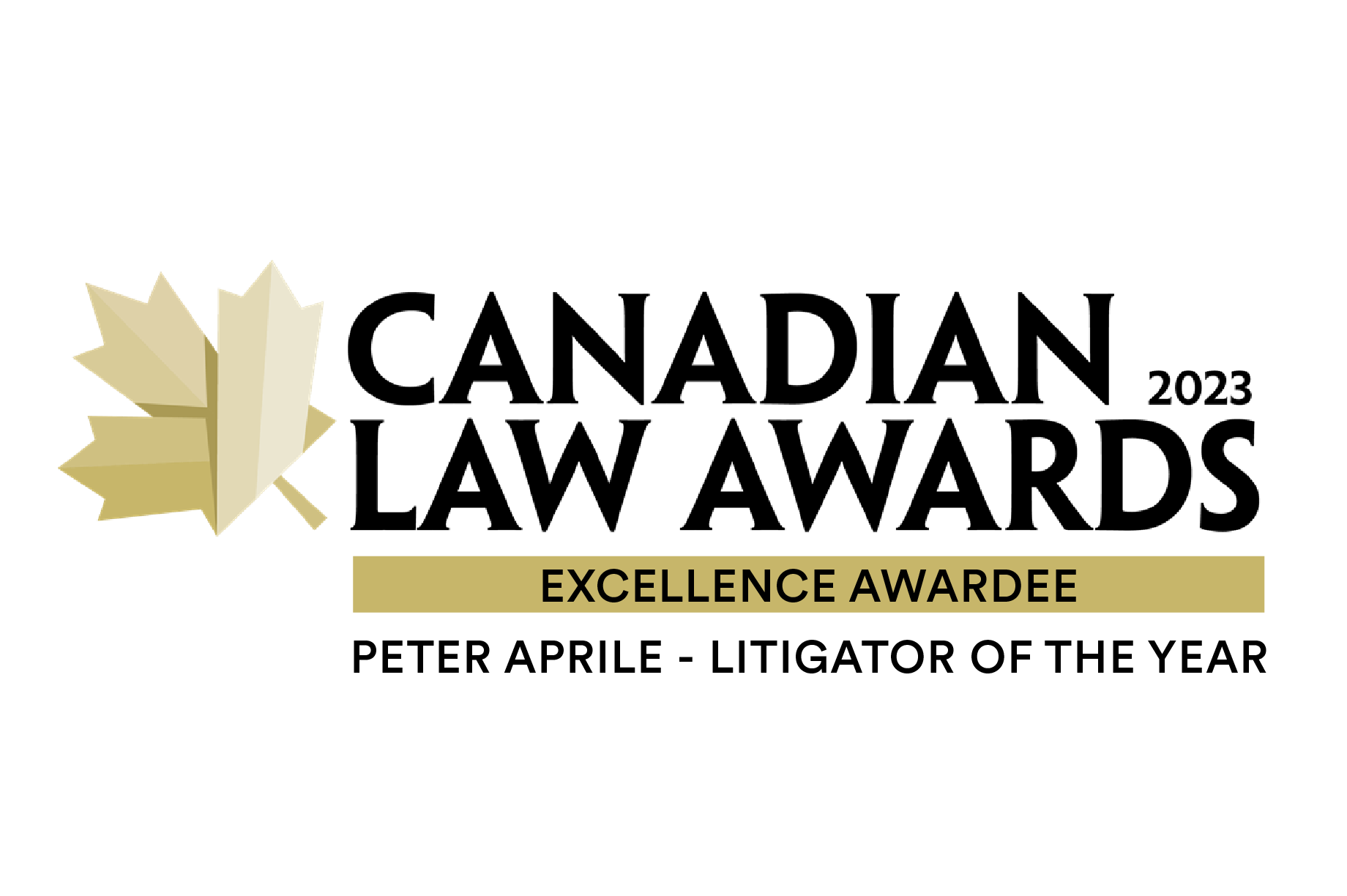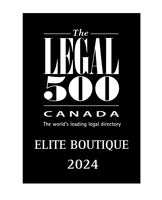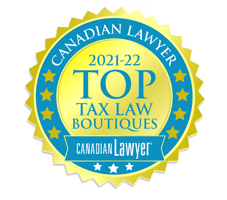
The Supreme Court of Canada, in Canada (Attorney General) v. Collins Family Trust,1 further clarifies when courts can grant equitable remedies of rectification or rescission.
The SCC upheld the prohibition against retroactive tax planning in Collins Family Trust. The SCC restricted the availability of equitable remedies in many situations while offering guidance for taxpayers to explore when confronted with unintended tax consequences.
Background
In 2008 and 2009, Todd Collins executed a tax plan to transfer money from an operating company to a family trust (the “Trust”). Todd executed the plan to protect the operating company’s assets without incurring income tax liability.2
The tax plan relied on applying the attribution rules and corporate dividend deduction under subsections 75(2) and 112(1) of the Income Tax Act, respectively.3
The Trust intentionally acquired shares in the operating company from a holding company to trigger subsection 75(2). Then, during the 2008 and 2009 tax years,
- the operating company paid dividends to the Trust;
- the Trust did not declare the dividend as income as subsection 75(2) of the ITA attributed the income to the holding company; and
- the holding company declared a deduction on its 2008 and 2009 returns in an amount equivalent to the dividends subsection 112(1) of the ITA deemed it to have received.
Todd and his tax advisors relied on the Canada Revenue Agency’s published interpretations of subsections 75(2) and 112(1) at the time.4 However, in 2011, the Tax Court of Canada held in Sommerer v. The Queen5 that subsection 75(2) did not apply to circumstances analogous to those in which the Trust acquired the shares.
The Canada Revenue Agency reassessed the Trust. The Trust’s appeals were unsuccessful. As a result, the Collins Family Trust filed for an order of rescission in the British Columbia Superior Court.
_ElectricBlueFlat.jpg?width=4000&height=1771&name=CounterBlogPattern(2)_ElectricBlueFlat.jpg)
The British Columbia Courts' Decision
The BCSC granted rescission to the Trust, undoing the transactions to remove the unintended dividend income.
The BCSC found that it was bound to apply the reasoning of the British Columbia Court of Appeal’s 2015 decision in Pallen Trust,6 granting rescission to a trust that executed an identical tax plan to the Trust.
However, the BCSC acknowledged that the Supreme Court of Canada’s decisions in Canada (Attorney General) v. Fairmont Hotels Inc.7 and Jean Coutu Group (PJC) Inc. v. Canada (Attorney General)8 – released after the Pallen Trust decision – significantly undermined the precedential value of Pallen Trust.
The BCSC specifically recognized that the Fairmont and Jean Coutu cases established two principles that, if relevant, would lead the Court to reject the Trust’s request for rescission:
- taxpayers should be taxed on what they actually did, not what they intended to do; and
- it is not permissible to retroactively alter a transaction to achieve an intended tax objective.9
The Attorney General appealed the decision to the BCCA. The BCCA affirmed the Collins Family BCSC Decision.10
In particular, the BCCA found that the principles established in Fairmont and Jean Coutu were only applicable in rectification cases, not rescission, and did not undermine the Pallen Trust decision.
The SCC's Decision
The SCC disagreed with the lower Courts’ decisions and overturned the decision to grant rescission of the transactions.
The SCC stated that “the prohibition against retroactive tax planning, as stated in Fairmont and Jean Coutu, should be understood broadly, precluding any equitable remedy by which it might be achieved, including rescission”.11
_ElectricBlueFlat.jpg?width=4000&height=1771&name=CounterBlogPattern(2)_ElectricBlueFlat.jpg)
Further, the SCC offered the following principles relevant to equitable remedies in the tax context:
- the Court is to inquire as to what the taxpayer agreed to do;
- the tax consequence does not flow from the taxpayer’s motivations or objectives but rather from the terms and relationships established by a transaction; and
- the Court cannot modify the transaction merely because the transaction caused an adverse or unplanned tax liability.12
The SCC reiterated that equitable remedies are available in a tax context, however, “not to avoid a tax liability” but where the transaction document fails to record the terms of the parties’ original agreement.13
Therefore, the SCC concluded that since the Trust had established the terms and relationships of the tax plan as intended, the Court was precluded from granting relief. The Court could not undo the tax plan solely because it led to an adverse or unplanned tax liability, regardless of whether the taxpayer was to blame for the mistake.
Impact
The SCC’s decision in Collins Family Trust clarifies that rescission and other equitable remedies are available where the parties to a transaction can prove that the terms or relationships created by a tax plan do not operate as the taxpayer intended.
The Court could not undo the tax plan solely because it led to an adverse or unplanned tax liability, regardless of whether the taxpayer was to blame for the mistake.
In Collins Family Trust, the advisors effectively implemented the plan and established all intended legal relationships. However, when these relationships lead to unintended tax implications, the SCC affirmed that no equitable recourse is available to undo or rectify the relationships. In this situation, the SCC recommended that taxpayers explore alternative remedies to mitigate the negative tax consequences of the mistake, such as pursuing a remission order.
Citations
1 2022 SCC 26 [Collins Family SCC Decision].
2 Collins Family Trust v. Canada (Attorney General), 2019 BCSC 1030 [Collins Family BCSC Decision], at paragraphs 9 to 14.
3 See Collins Family BCSC Decision at paragraphs 15 and 16 to read a complete overview of the tax plan discussed in this case.
4 Interpretation Bulletin IT–369.
5 2011 TCC 212, affd. 2012 FCA 207, at paragraph 131.
6 2014 BCSC 305.
7 2016 SCC 56 [Fairmont].
8 2016 SCC 55 [Jean Coutu].
9 Collins Family BCSC Decision, supra note 2, at paragraphs 93.
10 Collins Family Trust v. Canada (Attorney General), 2020 BCCA 196.
11 Collins Family SCC Decision, 2022 SCC 26, at paragraph 7.
12 Ibid, at paragraph 16
13 Ibid., at paragraph 23.














.png?width=400&height=400&name=CT-How_Can_We_Help-22_july_NewGraphic_b(small).png)
.png?width=1386&height=1224&name=2025%20Legal500%20Elite%20Boutique%20Award%20(Badge).png)
.png?width=1386&height=1224&name=ITR%20Finalist%20Practice%20Leader%20of%20Year%20Peter%20Aprile%202024%20(Badge).png)

.png?width=1386&height=1224&name=2025%20Legal500%20Leading%20Firm%20Client%20Satisfaction%20Award%20(Badge).png)



.png?width=1386&height=1224&name=ITR%20Tax%20Innovator%20Finalist%202024%20Award%20(Badge).png)




